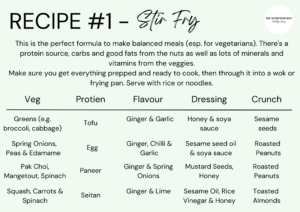We probably all remember our teenage years. The taste of freedom, with the excitement our whole lives ahead of us. One of the things that we probably don’t remember though is what we ate, but this actually has such a big impact on our future selves.
Adolescence is a time of rapid growth, learning and development which is all fuelled by the food one eats. For our teenagers, often the biggest challenge is learning to make adequate food choices and maintain healthy eating habits.
Many of these habits and patterns around food are learnt or adopted from their parents, so it’s important that as parents you’re leading by example.
If you take anything away from this article, these are my five tips to ensure you’re keeping your teenager healthy
One parent I worked with had a daughter who wanted to be a vegetarian and it was causing some challenging meal times. I worked with the parents initially to understand their challenges and then with the daughter to understand her likes and dislikes.
My first step was to identify what nutrients the teenager could potentially have deficiencies in by adopting this diet. This gave me the foundations for creating my bespoke package.
The top nutrients to consider for a vegetarian teenager:
This gave me a good basis to come up with some strategies for constructing their meals. I devised some fun ‘build your own’ meal sheets to help the family. This guided them on the proper nutrients for the vegetarian teenager and showed them new types of vegetarian food whilst also showing how they could swap in meat options.

If you’d like to know more, drop me an email at info@thenutritiousway.net. Or check out my pre-made meals plans here or even bespoke meal plans for teenagers here.
1. How can teenagers balance nutrition with busy schedules and limited cooking skills?
Teenagers facing hectic schedules and limited cooking skills can still prioritise nutrition by opting for quick, healthy meal options such as whole grain sandwiches, and yogurt with fruit, nuts. Additionally, learning simple cooking techniques and meal prepping can help save time and ensure nutritious choices throughout the week.
2. Are there resources available for parents who need guidance on navigating their teenagers’ dietary preferences and restrictions?
Yes, several resources are available for parents seeking guidance on navigating their teenagers’ dietary preferences and restrictions. Online platforms, books, and community groups often provide valuable insights and support. Additionally, consulting with a registered nutritionist can offer personalised advice and meal planning strategies tailored to individual needs.
3. How can families foster positive eating habits and a healthy relationship with food beyond meal planning?
In addition to meal planning and nutrition education, families can foster positive eating habits and a healthy relationship with food by creating a supportive mealtime environment, practicing mindful eating, involving teenagers in grocery shopping and meal preparation, and promoting positive body image and self-esteem. Open communication, flexibility, and mutual respect are essential for building lifelong healthy habits around food.


Nuala is a Registered Nutritionist under ANTA in Australia and with the UK’s Association for Nutrition. The clinic is located in at Akasha Integrated Health (Manly) in Sydney’s Northern Beaches in Australia.
menu
latest blogs
© 2023 The Nutritious Way, All Rights Reserved